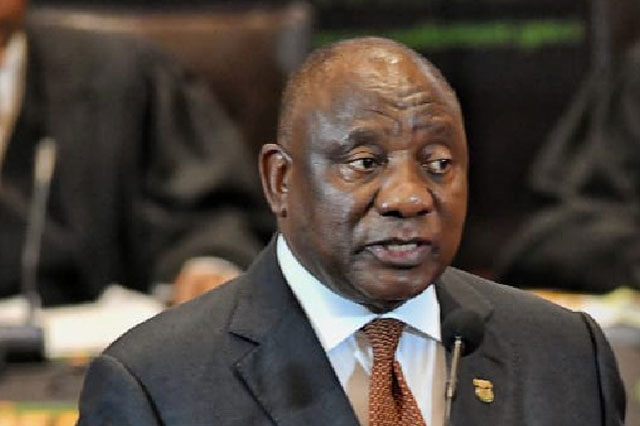Johannesburg – South Africa will get an electricity minister and the government will assume additional powers to tackle crippling blackouts under a new, controversial measure – the extent of which remained largely unclear on Friday.
President Cyril Ramaphosa declared a state of national disaster during his annual state-of-the-nation address on Thursday night in a bid to fast-track efforts to pull the country out of its worst ever energy crisis.
This would unlock additional funds and resources and allow for the government to leapfrog some bureaucratic hurdles and accelerate new energy projects, according to analysts.
But the announcement was thin on detail, leaving many to wonder what will happen in practice – and raising concerns about possible malpractice in a country reeling from graft scandals.
Energy analyst Ted Blom said declaring a state of disaster was “long overdue” but it was difficult to assess how the one proclaimed by Ramaphosa would play out “because we don’t know what the government actually plans to do”.
ALSO READ | WATCH | Cyril Ramaphosa announces state of national disaster to end SA’s blackouts
South Africa has experienced record blackouts, known as loadshedding, over the past year, as its creaking coal-generated power system has failed to keep pace with demand.
In his speech in Cape Town, Ramaphosa said the state of disaster would enable to government to support battered industries like the food sector, through measures including “the rollout of generators, solar panels and uninterrupted power supply”.
The “most immediate task is to dramatically reduce the severity” of outages in “the coming months and ultimately end” the power cuts “altogether”, the president said.
Debt-laden power utility Eskom has struggled to maintain its infrastructure, suffering from the effects of endemic corruption that hollowed out its coffers during former president Jacob Zuma’s tenure.
Last month, the state-owned firm said power cuts could be a permanent feature for the next two to three years, as it moves to upgrade its ageing power stations.
The blackouts have affected essential services and infrastructure, triggering water shortages in continent’s most industrialised economy.
‘Looting frenzy’
Ramaphosa announced he intends to appoint an electricity minister to oversee the crisis and work with Eskom.
South Africa’s main opposition party the Democratic Alliance (DA), criticised the move, saying the new role would cost taxpayers around 37 million rand ($2 million) a year and only add “yet another ministerial portfolio” to an “already bloated and inefficient cabinet”.
The party, which had previously called for a “ring-fenced” state of disaster on Eskom, vowed to challenge the government’s new “sweeping” measure in court, fearing it could lead to a “looting frenzy” of state funds.
“South Africa has been down this road before. During the Covid-19 disaster,” DA leader John Steenhuisen said in a statement.
“Our country simply cannot survive another round of the looting and irrationality.”
ALSO READ | ‘Ramaphosa is a dictator,’ says Julius Malema after his EFF party thrown out of SONA
Thousands of contracts awarded for Covid-19 services and supplies worth more than $900 million were probed by South African detectives investigating corruption and malfeasance in the wake of the pandemic.
Energy analyst Mark Swilling, of Stellenbosch University told AFP the state of national disaster “could be a help” if the government did things “properly” and was to be held accountable.
But Blom said that an energy minister was “not the right way to go”, since political interference has been the main reason behind Eskom’s collapse.
The power cuts “can be stopped in 90 days if the government appointed people who knew what they were doing,” Blom told AFP.
The ruling African National Congress, in power since the advent of democracy in 1994, has been battered by graft, cronyism and a moribund economy, which have drastically diminished public confidence in the party.
The electricity crisis threatens to dim Ramaphosa’s chances of securing a second term after next year’s elections.
Follow African Insider on Facebook, Twitter and Instagram
Source: AFP
Picture: Twitter/@PresidencyZA
For more African news, visit Africaninsider.com


